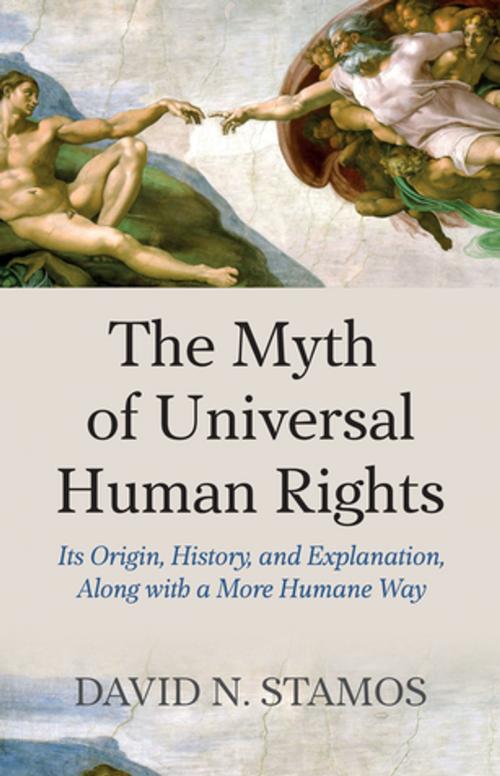Myth of Universal Human Rights
Its Origin, History, and Explanation, Along with a More Humane Way
Nonfiction, Social & Cultural Studies, Social Science, Sociology| Author: | David N. Stamos | ISBN: | 9781317255772 |
| Publisher: | Taylor and Francis | Publication: | November 17, 2015 |
| Imprint: | Routledge | Language: | English |
| Author: | David N. Stamos |
| ISBN: | 9781317255772 |
| Publisher: | Taylor and Francis |
| Publication: | November 17, 2015 |
| Imprint: | Routledge |
| Language: | English |
In this groundbreaking and provocative new book, philosopher of science David N. Stamos challenges the current conceptions of human rights, and argues that the existence of universal human rights is a modern myth. Using an evolutionary analysis to support his claims, Stamos traces the origin of the myth from the English Levellers of 1640s London to our modern day. Theoretical defenses of the belief in human rights are critically examined, including defenses of nonconsensus concepts. In the final chapter Stamos develops a method of naturalized normative ethics, which he then applies to topics routinely dealt with in terms of human rights. In all of this Stamos hopes to show that there is a better way of dealing with matters of ethics and justice, a way that involves applying the whole of our evolved moral being, rather than only parts of it, and that is fiction-free.
In this groundbreaking and provocative new book, philosopher of science David N. Stamos challenges the current conceptions of human rights, and argues that the existence of universal human rights is a modern myth. Using an evolutionary analysis to support his claims, Stamos traces the origin of the myth from the English Levellers of 1640s London to our modern day. Theoretical defenses of the belief in human rights are critically examined, including defenses of nonconsensus concepts. In the final chapter Stamos develops a method of naturalized normative ethics, which he then applies to topics routinely dealt with in terms of human rights. In all of this Stamos hopes to show that there is a better way of dealing with matters of ethics and justice, a way that involves applying the whole of our evolved moral being, rather than only parts of it, and that is fiction-free.















